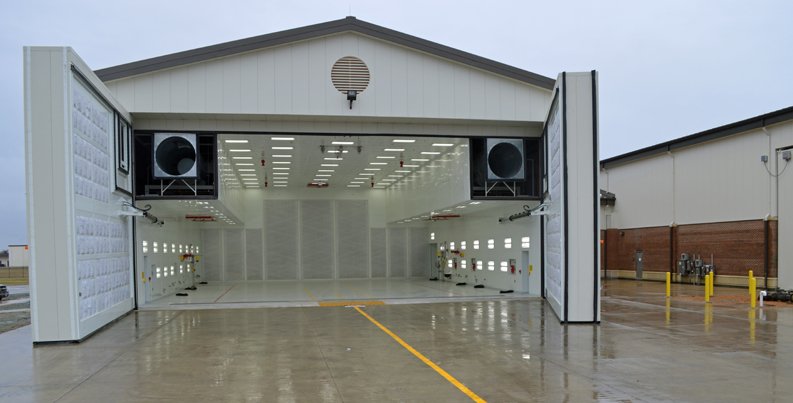If you’re running a spray paint booth, you know that proper airflow is a key component, but it’s even more important to keep the air clean. After all, you want to make sure you get the smoothest possible finish on any new paint job, but we all know that air doesn’t just come from anywhere. It has to be brought in from the outside, and there’s no way to know what might be mixed in with it. That’s why spray paint booths use high-efficiency filters that are designed to remove any dust or airborne particles. That way, there is nothing coming in that can contaminate the incoming air.
Air filters on most spray paint booths fit onto an intake, which has a wire frame that looks like a grid in order to keep it in place. They come in three different sizes:
- 20 in. x 20 in.
- 20 in. x 25 in.
- 20 in. x 50 in.
The most common sizes are the 20 in. x 20 in. and the 20 in. x 25 in, and they can be made out of a variety of different materials. Each type of air filter will have both their advantages and their disadvantages.
Fiberglass filters are the cheapest, and they come in either 20 in. x 20 in. or 20 in. x 25 in. pads. They also come in rolls ranging from three to seven feet. They are usually shipped in a type of compressed packaging, which can cut on shipping costs. However, they have a low holding capacity, and the amount of contaminants and overspray is not always evenly distributed throughout the filter. Another downside to fiberglass filters is that they can be difficult to dispose of.
Paper paint collectors cost a little more than fiberglass filters, but they are still moderately priced. Like fiberglass filters, they come in either 20 in. x 20 in. or 20 in. x 25 in. pads, and they have a low holding capacity. However, they are easier to dispose of. They also come in a high capacity model, which is made of a thicker material than standard paper paint collectors. They also have a higher holding capacity, but they are more expensive. So, that is something you need to bear in mind.
Paint pocket filters offer the best quality. They have a high holding capacity, and they do a better job of keeping your exhaust and air ducts cleaner. They come in either 20 in. x 20 in. or 20 in. x 25 in. pads, or you can get them in rolls of the same size. The only downside is that while they do offer the best quality, they are going to be more expensive. So, you have to decide if you’re able to fit them into your budget.
Regardless of which type of air filter you decide to use, you should never use standard AC filters for your spray paint booth. They have neither the thickness nor the holding capacity to do the job. It’s better for you to spend the extra money up front, or it can cost you thousands in the long run.
Aside from keeping your intake and exhaust properly filtered, there are a couple of other things you can do to keep the air in your booth clean. There is a special type of paper you can lay down on the floor, which is not only durable but is resistant to flames. This will not only keep the floor clean, but it will also help prevent fires. The walls and ceiling of the booth can also be treated with a special coating that will help keep the area clean. It can be either sprayed or rolled, and it can be easily peeled off if you need to put on a fresh coat.
Keeping the air free from dust or particles is essential for any good quality paint job. So, having a good filtration system is essential. While there are a variety of air filters available, it’s important to choose the right one for your budget. But it’s just as important to keep the surfaces of the booth clean, as that will also limit the amount of contaminants that can get in the air.


